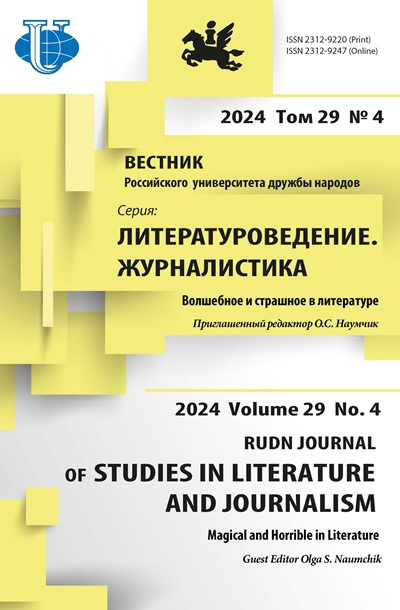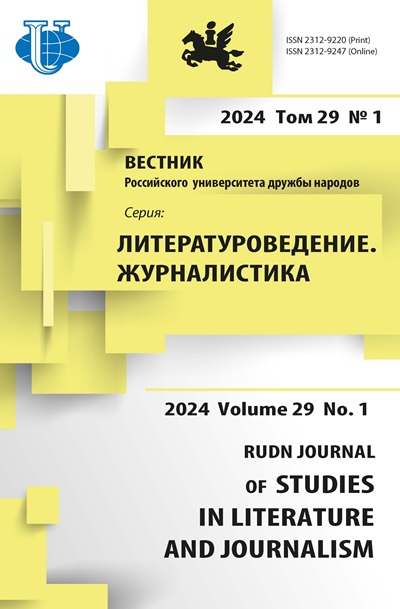Abstract
The features of the use of intertextual references in A. Salnikov’s novel “Occulttreger” are examined. The goal is to study the intertextual connections of the novel with works of various types of art (literature, music, cinema). The task is to classify sources of re- ferences and interpret them. A general thesis is put forward about the fundamental importance of intertext as a tool for creating a fantasy world and a method of artistic generalization of reality. Analysis of references allows us to identify many cultural phenomena that the writer refers to in order to summarize the modern pop cultural agenda. The novel's precedent sources are varied and often come from contemporary cultural products. The use of references to popular culture reflects such a feature of modernity as the consumption of content, which is part of people’s everyday life. An abundance of references accompanies the fantastic part of the novel and in the realistic epilogue they disappear, which makes us talk about intertext as a stylistic marker of fantasy in Salnikov. Film quotes visualize text and synchronize reader’s and artistic time. The space of the novel can be interpreted as oneiric; the dream narrative in the novel is created by an excess of cultural associations.
















